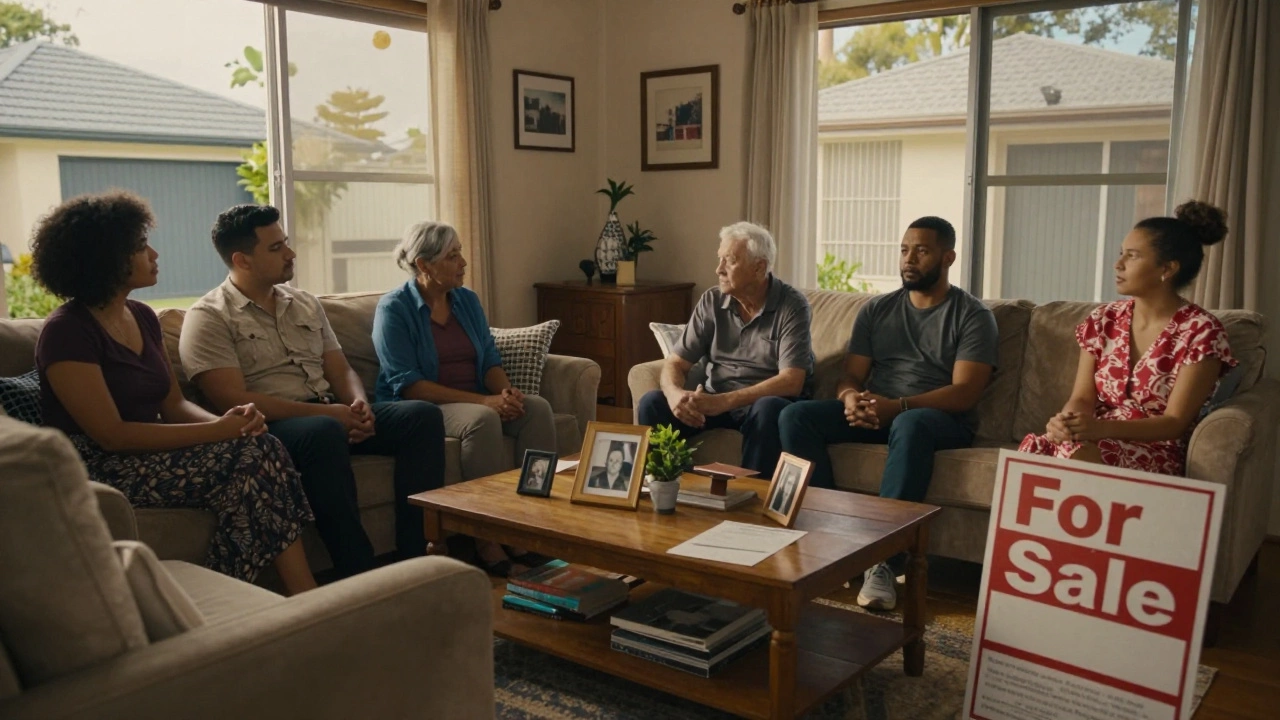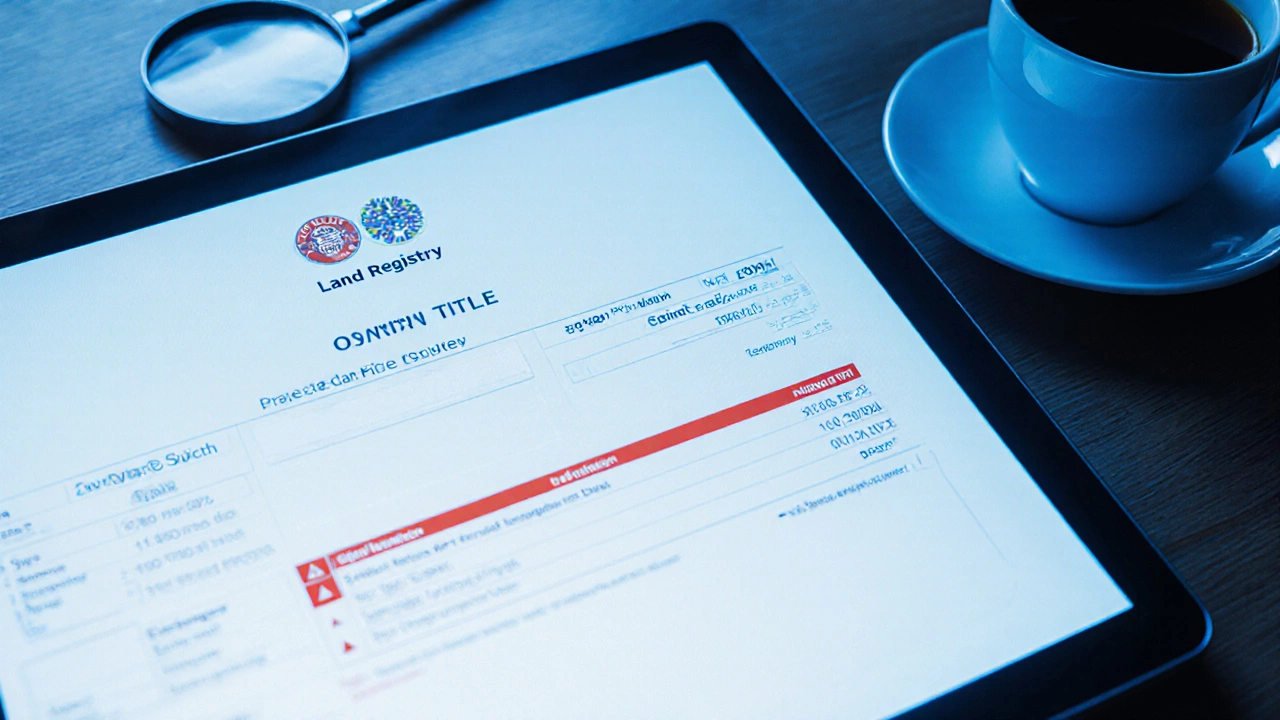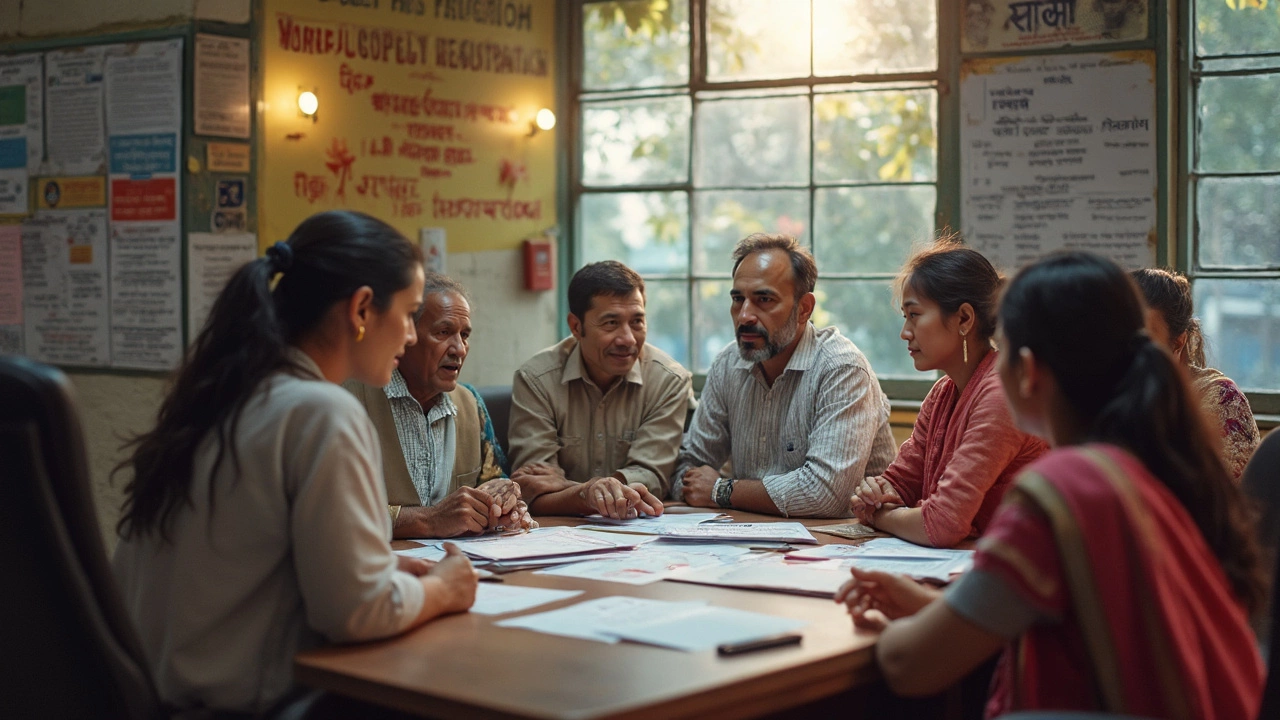How to Register Your Property in India – Simple Step‑by‑Step Guide
Buying a house or land is exciting, but the paperwork can feel overwhelming. Fortunately, registering a property in India is pretty straightforward once you know the exact steps. This guide walks you through everything you need – from gathering documents to paying the registration fee – so you can finish the process without a hitch.
What You Need Before You Start
First, make sure you have the core documents ready. You’ll need the original sale deed, proof of identity (Aadhaar, PAN, or passport), and address proof for both buyer and seller. If the property is a resale, get the previous title deed and any tax receipts that show the past owner paid property tax. Don’t forget the no‑objection certificate (NOC) from the local municipal authority if the land is on a government‑controlled area. Having these papers in hand saves you from multiple trips to the sub‑registrar office.
The Registration Process Explained
Step 1: Visit the local Sub‑Registrar office where the property is located. Bring all the documents and two passport‑size photos of both parties. Step 2: Fill out the registration application form. The clerk will guide you, but it’s a good idea to double‑check the spelling of names and property details before signing. Step 3: Pay the registration fee, which is usually 1% of the market value, plus stamp duty that varies by state (often 5‑7%). You can pay via cash, demand draft, or online, depending on the office.
Step 4: The registrar will verify the documents, apply the stamp, and have both buyer and seller sign the deed in the presence of the registrar. Once signed, you’ll receive a registered copy of the sale deed. Keep this document safe – it’s proof that you legally own the property.
Step 5: Finally, update the municipal records and apply for a new tax assessment in your name. This ensures you receive future tax bills and can avoid disputes later.
Pro tip: If any part of the deed mentions old owners or unclear boundaries, get a fresh survey done before registration. It may cost a little extra, but it prevents legal trouble down the line.
That’s the whole process in a nutshell. With the right paperwork and a clear plan, registering your property becomes a quick task rather than a headache. Happy home ownership!

What Is a Non-Homeowner? Understanding Property Status Without Ownership
A non-homeowner is someone who lives in a property but doesn’t own it. This status affects legal rights, access to services, and residency proof. Learn how property registration systems in Australia exclude renters and what you can do about it.

What Refers to Proof of Property Ownership? Understanding Title Deeds and Registration
Proof of property ownership in Australia is established through official registration on the land titles system. A title deed or electronic record is the only legal proof-contracts and bills don't count.

How to Get a Certified Copy of Your Property Registration in NYC
Lost your property paperwork in NYC? Getting a certified copy of your property registration isn't as tricky as you might think. This article breaks down where to start, what you need, and exactly how to request your official record. You'll get insider tips to avoid delays and spend less on fees. No confusing jargon—just simple steps you can follow right away.

Non-Resident Examples in Property Registration: Who Actually Counts?
Wondering who counts as a non-resident when it comes to property registration? This article shares practical examples, explains different categories, and clears up confusion around NRI and foreign citizens owning property in India. You’ll see how definitions matter for taxes, documentation, and even paperwork at the registration office. No fluff here—just straight answers that smooth the process for buyers, sellers, and anyone curious about property rules in India.

Non-Resident Status: What Really Counts for Property Registration
Wondering what makes you a non-resident when it comes to property registration? The rules aren't as obvious as you might think. This article breaks down the exact criteria, busts some common myths, and shares real-world tips to help you avoid expensive mistakes. You'll learn how your stay abroad or your daily routine back home can change your legal status. If property deals or paperwork are on your mind, this will clear it up.

How Do I Get a Copy of My Deed in NY? Your Step-by-Step Guide
Trying to find your property deed in New York? This article shows you how to get a copy, whether you want it online or in person. It covers what info you'll need, where to look, and how much it'll likely cost. You’ll also pick up tips to avoid common mistakes people make during this process. No legal jargon, just the details you actually need.

Penalty for Renting Without a License in Maryland: Do the Risks Add Up?
Renting out property in Maryland without a license can get messy—and expensive—fast. Landlords who skip registration might face steep fines, legal action, and a whole lot of hassle with tenants. This article breaks down what happens if you rent without a license, how authorities catch unregistered rentals, and what you need to do to avoid nasty surprises. You'll also catch some quick tips to keep your rental business legal and stress-free.

What Makes Me a Non-Resident? Property Registration Rules Explained
Ever wonder what actually decides if someone is a non-resident when it comes to owning or registering property? This article breaks down how residency is checked, what non-resident status means for you, and why it even matters. You'll discover the rules real estate offices follow, what paperwork comes into play, and why even a small mistake in your status can twist your property plans. If you're living abroad or moving often, these facts could save you a bunch of needless stress. Whether you're an NRI or just confused by all the definitions, get the facts straight.

Do You Have to Register as a Landlord in Maryland? Plain Answers for Property Owners
Wondering if you need to register as a landlord in Maryland? This article breaks down who needs to register, where, and how, including essential tips on state, county, and even city-specific rules. Find out what happens if you skip landlord registration. Get a clear rundown of costs, timelines, and paperwork without the legal jargon. Whether you're renting a single-family home or a multi-unit property, this guide simplifies the process.

How to Find Out Who Owns a Property in NY: A Straightforward Guide
Wondering who owns that interesting building or curious piece of land in New York? This guide breaks down the simplest, most practical ways to dig up property ownership info, using public records and online tools specific to NY. You’ll learn about free and paid options, what info you need beforehand, and some common roadblocks you might run into. Get tips that speed things up and “aha” facts about property records you won’t find elsewhere. Whether you're a neighbor, buyer, or just plain nosy—here’s what actually works.

Is Owning a Home the Same as Owning Real Estate? What You Need to Know Before Registering Your Property
You might think owning a home is the same as owning real estate, but there are key differences that can affect your legal rights and responsibilities. This article explains what it really means to own a home versus owning real estate from a legal and practical angle. It covers the registration process, paperwork, and common misunderstandings people run into. Get real-life tips to avoid costly rookie mistakes. Equip yourself with knowledge before you make any big property decisions.

Do You Need a Rental License in Virginia?
Navigating the need for a rental license in Virginia involves understanding local rules and regulations for landlords. While some regions in Virginia require landlords to obtain a rental license, others may have more relaxed policies. This article dives into the specifics of where and when a rental license is necessary, providing practical advice and tips for landlords. Knowing these requirements can ensure a smoother rental process and compliance with legal obligations.

